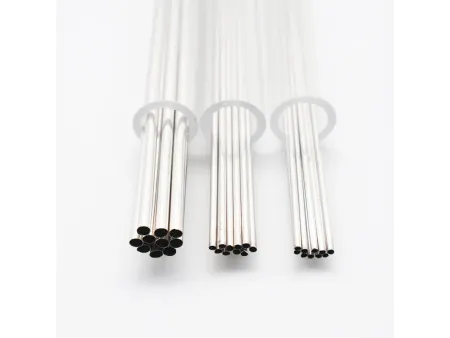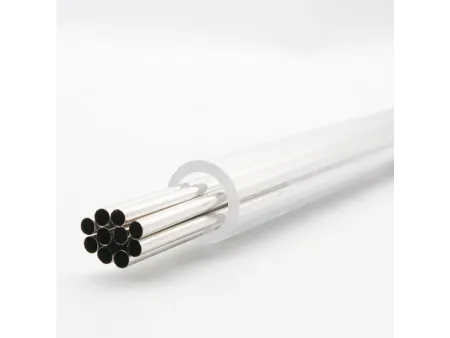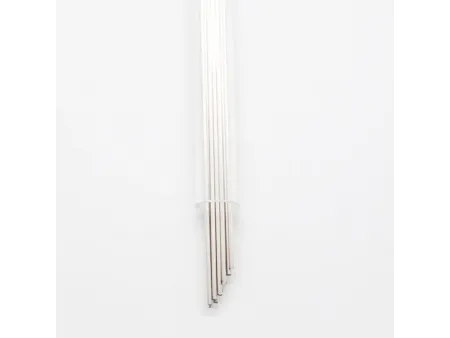Platinum-Iridium Alloy Tube
Platinum-iridium alloy tube is made from a high-quality blend of platinum (Pt) and iridium (Ir) in a 90/10 ratio (PtIr10). This chemical composition offers excellent biocompatibility, resistance to electrolytic corrosion, and radiopacity, making it an ideal choice for demanding medical environments.
Widely used in the manufacturing of precision interventional devices, Platinum-iridium alloy tubes are commonly applied in neuroelectrodes, vascular intervention catheters, and other high-reliability implantable or diagnostic medical equipment. The alloy’s mechanical strength, chemical stability, and visibility under imaging systems (such as fluoroscopy) allow for safe and precise navigation within the human body.
Available Grades: PtIr5, PtIr10, PtIr20, PtIr25, PtIr30
Outer Diameter: 0.2 - 20 mm
Wall Thickness: 0.015 - 2 mm
Length: 10 mm, or customizable
| Grades | Melting Point °C | Density g/cm | Vickers Hardness (Soft State) | Vickers Hardness (Hard State) | Tensile Strength (MPa) | Electric Resistivity (uΩ.cm) at 20℃ |
| Pt-Ir5% | 1790 | 21.49 | 90 | 140 | 274 | 19.0 |
| Pt-Ir10% | 1800 | 21.53 | 130 | 230 | 382 | 24.5 |
| Pt-Ir20% | 1840 | 21.81 | 200 | 200 | 300 | 32 |
| Pt-Ir25% | 1840 | 21.70 | 200 | 300 | 238 | 33 |
| Pt-Ir30% | 1850 | 22.15 | 210 | 320 | 242 | 32.5 |
- Performs reliably at high temperatures above 1500°C without deformation or material degradation
- Exceptionally resistant to corrosion, even in highly aggressive environments such as aqua regia, chlorine gas, and hydrofluoric acid
- High strength-to-weight ratio, suitable for use in delicate or miniaturized medical devices under demanding conditions
- Medical devices: Used in neurostimulation electrodes and pacemaker leads for brain and cardiac implants
- Aerospace: Serves as a flame-resistant nozzle material in rocket engine injectors, withstanding high-temperature combustion of liquid oxygen and kerosene
- Chemical processing: Applied as liner material in catalytic reactors for hydrofluoric acid production due to its exceptional corrosion resistance
- Precision instrumentation: Functions as the core electrode in atomic clocks for ultra-stable frequency control




